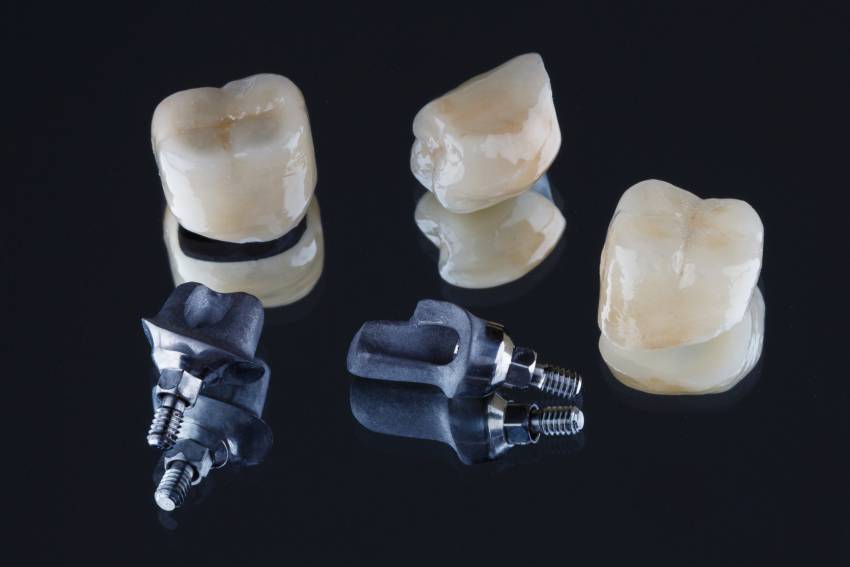The loss of even one tooth can make chewing challenging. Dental crowns can restore oral function following toothless or extensive dental work.
Choosing the right type of crown can be difficult. The North American market for crowns and bridges alone is valued at around $1.2 billion, and there are many types of crowns on the market.
Are you curious about the different types of crowns that are available? Read on to learn about the various options for tooth crowns.
What Are My Options for Dental Crowns?
Dental crowns can restore a compromised tooth. They can also replace a missing tooth. To restore a lost tooth, you’ll have to have a dental implant placed.
Whichever option you choose, your crown can be fabricated from resin, ceramic, zirconia, gold, or other metals.
Porcelain Crowns
Porcelain crowns are popular for several reasons. The material is reliable and durable, which makes them suitable for both molars and anterior teeth.
The crowns are fabricated from a single block of ceramic. Porcelain comes in a variety of shades that can be colour-matched to exact specifications.
Porcelain also insulates well, meaning patients won’t have to worry about tooth sensitivity following crown placement. Porcelain is biocompatible. This means that anyone with an allergy to metal won’t have to worry about using ceramic.
When appearance matters, porcelain crowns are often the best choice. The only downside is that porcelain can wear over time. Individuals who grind their teeth may need to have these crowns replaced more frequently.
Gold Crowns
Gold crowns have a long track record of being safe and effective to use. Despite the name, gold crowns are often made from a range of metals. The mixture often includes platinum and copper.
One of the main benefits of gold crowns is durability. Metal does not wear as easily as porcelain. This allows the crowns to last for decades in some cases.
Gold crowns are often an ideal choice for replacing molars. The mixture of metal is not cosmetically pleasing, which can make this a poor choice for anterior teeth treatments.
Some patients may develop an allergic reaction to the presence of metals. In some cases, a dentist may recommend blending gold with porcelain. Blending the two materials allows the crown to be durable and cosmetically pleasing.
Stainless Steel
Stainless steel crowns are often used in children. Placing the caps in youths allows for normal oral function while the adult tooth develops.
Stainless steel crowns are a cost-effective option when the crown is only needed on a short-term basis. Placement of stainless steel crowns is relatively easy.
Metal Materials
Beyond gold and stainless steel, there is a range of metal options to choose from. Most metals offer high levels of durability, but some may not be great options for people who have metal sensitivity.
Metal crowns are also not aesthetically appealing. Work with your dentist to find out which options are right for you. Following a root canal treatment, your dentist in North York may recommend a specific blend of metals to restore your smile.
Porcelain-Fused-to-Metal (PFM)
Combining porcelain with metal allows dentists to take advantage of the durability of metal and the look of porcelain. Ceramic closely mimics the colour and luster of enamel. This option can be ideal for teeth that might be visible.
PFM crowns can be used anywhere. This restorative treatment is not the cheapest option, but many patients find that the advantages are worth the investment.
Zirconia
Zirconia crowns are fabricated from zirconium dioxide. Zirconium dioxide is a very durable type of ceramic.
Zirconia is also biocompatible. This means that patients do not have to worry about having an allergic reaction to the material.
Dentists often recommend zirconia because the material closely mimics the luster and colour of enamel. One possible drawback is that the material can erode nearby molar enamel if the patient has a harsh bite.
What Types of Technology Can Fabricate Crowns?
There are two basic ways that your crown will be fabricated. If your dentist works with an outside company, you will be fitted with a temporary crown while a technician fabricates your permanent crown.
Dentists often fabricate temporary crowns from composite resin. The dental bonding consists of plastics. While using a temporary crown, be sure to avoid biting hard objects that could break or dislodge your temporary crown.
Many dental practices now offer CEREC technology. Same-day crowns are fabricated while you wait at a dentist’s office. Once your tooth has been prepared, your dentist will use a special device to scan your treated tooth.
Same-day crowns are usually made from ceramic. Once the machine has fabricated your custom porcelain crown, your dentist will ensure that the crown is a perfect fit.
Once your dentist determines that your crown is a good fit, he or she will use a strong cement to place your crown. Any minor adjustments can be made after that.
There is no recovery associated with dental crown placement. Some patients find that it takes time to adjust to their new prosthetic.
Learn More About Dental Crowns
Dental crowns offer a safe and effective means of restoring oral health following tooth loss or damage to your enamel. If you are looking for a reliable source of dental treatment, DentalX offers a wide range of treatment options in North York, Toronto.
We focus on prevention, education, and maintenance. We have multi-lingual staff who are highly experienced and educated. We are always welcoming new patients of all ages.
To schedule your next visit, please contact our office online so someone can promptly respond.

